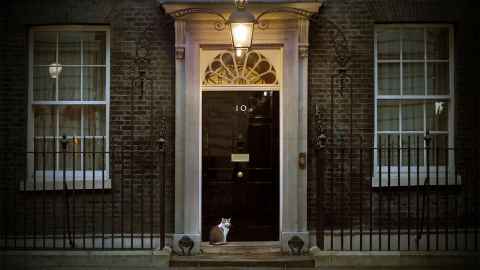Even if Boris wins, the barometer is moving
11 December 2019
Opinion: A decade of austerity and four elections in five years have scarred Britain. John Morgan wonders if the electoral barometer might yet swing to change.

Tomorrow, Britons go to the polling booths for the fourth time in five years. If you have not been paying attention, here’s a quick re-cap: first there was the general election in 2015 that granted David Cameron (remember him?) a working majority and which left him in such a bullish mood that he promised the British people a referendum on the ‘longstanding’ question of whether or not it should be part of Europe.
Just over a year later came the historic Brexit referendum. With Cameron off to pray for atonement, his successor Theresa May (initially hailed as a sensible voice and riding high in the opinion polls) called an election for May 2017 to have a mandate for her Brexit plan. But a late surge in support for Jeremy Corbyn’s Labour Party denied her a working majority.
She limped on, with the casting votes of the Democratic Unionist Party, trying and failing three times to get Parliament to vote in favour of her Withdrawal Agreement. For May, time ran out and she was replaced by Boris Johnson who promised to “Get Brexit Done”. His lack of immediate success prompted him to call an election. Hence the vote on December 12.
These are tumultuous times in British politics and the outcome of next week’s vote may be surprising. Although ‘the polls that have to be obeyed’ give the Conservatives a clear lead, a late surge of younger Labour voters, coupled with tactical voting, could deny Johnson absolute power. After 30 years of the market being king, the political compass may be swinging to the left once more.
The shock of 2008 is central to this. Before the global financial crisis, economic demand was kept afloat through the availability of cheap credit. When the credit crunch happened, the economy stagnated and Britain girded its loins for a short, sharp shock of austerity. For a time (for some at least) it seemed like a jolly jape; tightening belts, darning your socks and cooking cheap pieces of meat not seen since the War.
Jamie Oliver, ever one to cash in on the mood of the nation, even published an expensive cookbook called Save with Jamie. A decade later, the shine has disappeared; economic growth is minuscule, wages have stagnated, people are working longer hours, students have accumulated debt, food banks and op-shops have mushroomed, teachers report buying lunch for children who haven’t eaten and the future for many seems bleak. Meanwhile, the rich have grown richer and there is a sense that an arrogant elite feel entitled to ‘man-spread’ across the front benches of parliament.
So a change is gonna come. But how soon and how much is not yet clear. My trusty barometer in these matters is the Financial Times, the paper that represents the views of the business class. Soon after the crash, it spoke of the need to reform capitalism, ten years on, it is even more insistent. Its chief economics editor wrote recently about ‘rigged capitalism’ and it announced last week that the age of austerity is over and the Treasury is poised to increase public spending.
Even as the paper announces its opposition to the agenda set out in the Labour Party manifesto – It’s time for a real change – that is, tax increases, sweeping nationalisation, power-sharing with workers and a ‘vast’ increase in state spending, it admits Labour is correct in its analysis. I quote:
“Nearly a decade after the Conservatives returned to power, real wages have still not returned to their pre-crisis peak. Homelessness has risen. Basic public services such as the criminal justice system, social care and local government are dire. Privatised water and railway companies are not delivering for users. Large parts of the population feel excluded from the bright spots of prosperity, mainly in the south-east.”
Whoever wins this week will have a lot on their plate then. Good luck to them.
Professor John Morgan is Head of Critical Studies in Education at the Faculty of Education and Social Work.
This article reflects the opinion of the author and not necessarily the views of the University of Auckland.
Used with permission from Newsroom: Even if Boris wins, the barometer is moving, 11 December 2019.
Media queries
Alison Sims | Research Communications Editor
DDI 09 923 4953
Mob 021 249 0089
Email alison.sims@auckland.ac.nz